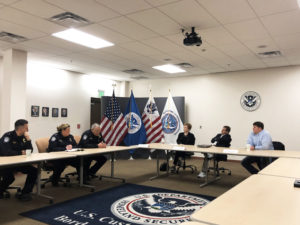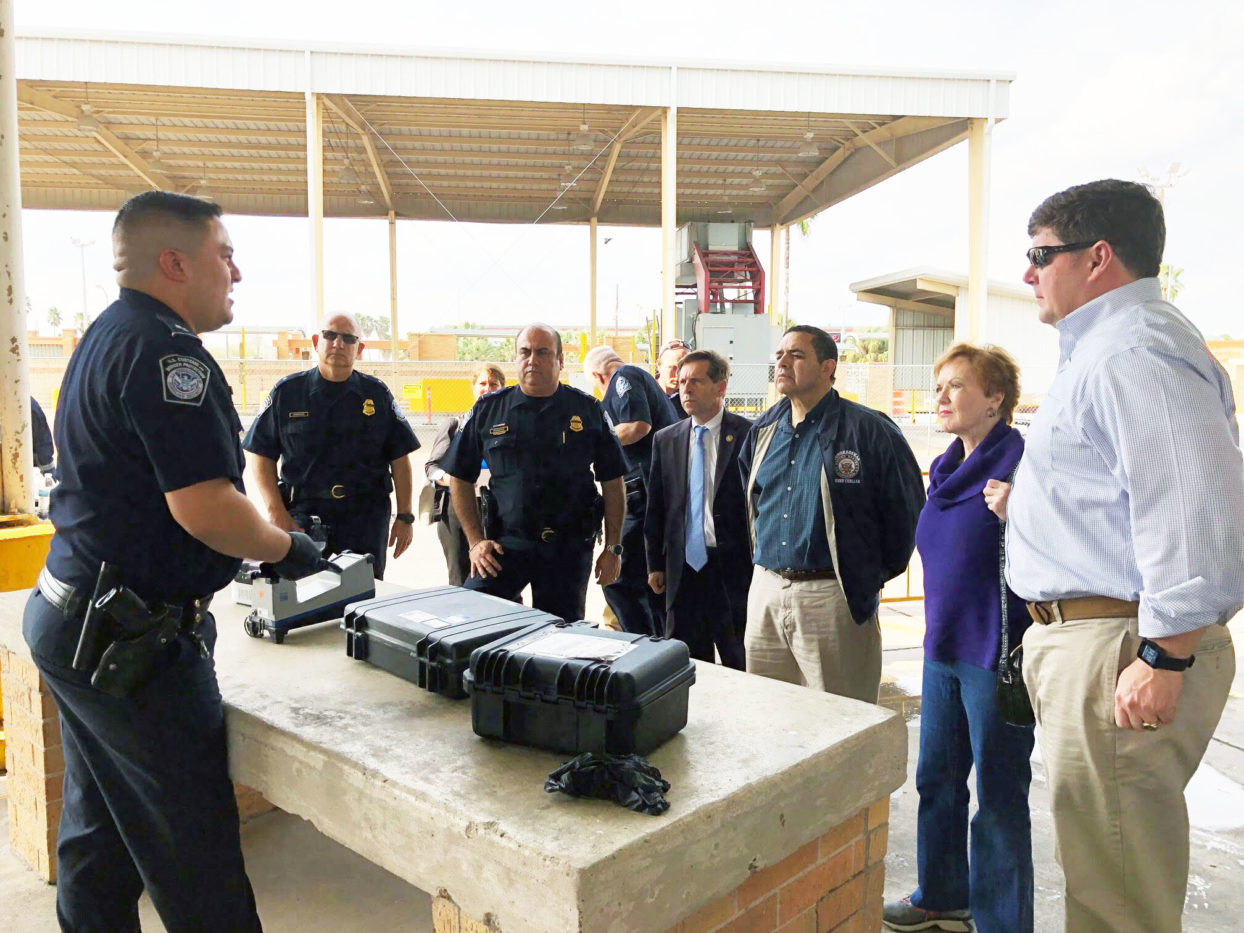Rep. Chuck Fleischmann is calling for Congress and the country to solve a humanitarian crisis
By Bill Brewer
Rep. Chuck Fleischmann understands the U.S. immigration crisis inside the halls of Congress and out at the border crossings.
He has visited on more than one occasion the U.S. border with Mexico, where thousands of undocumented Hispanic immigrants who have entered the United States are detained and thousands more are trying to enter from Mexico.
The lawmaker, who represents Tennessee’s 3rd Congressional District, which includes Hamilton, Polk, McMinn, Monroe, Scott, Morgan, Roane, Union, and Campbell counties, is an Ooltewah resident who attends the Basilica of Sts. Peter and Paul in Chattanooga.
He also is the grandson of immigrants from Europe who entered the United States and settled in the Northeast.
“My grandparents were Catholic immigrants from Italy who came here with the rule of law through the proper legal immigration process. They settled in New York after coming into the United States through Ellis Island. And on my father’s side of the family, my grandparents were immigrants from Austria-Hungary who also entered the United States legally through Ellis Island,” Rep. Fleischmann said.
Rep. Fleischmann has been pressing Congress to find a solution to a situation he now calls a humanitarian crisis. But a solution continues to elude lawmakers, a conundrum beset by politics; foreign relations and policies; differing national, state, and local attitudes; and even economics.
“I come at this from a very personal standpoint. I have visited the border and witnessed the humanitarian crisis there. The sheer magnitude of the crisis has been made aware to me,” Rep. Fleischmann said. “This situation at the border is a crisis with a capital C. I’ve seen it firsthand. It’s a humanitarian crisis. Women and children are being abused on their way up. The system is in total disarray. It is horrific what is going on. It is a failure of the American immigration policy that we’ve allowed this situation to get started and continue.”
While criticizing some Democrats who refused to acknowledge the border crisis, the five-term Republican said members of Congress are trying to deal with the situation on a daily basis. He emphasized that the southern border is porous and the immigration system is flawed, which have contributed to “coyotes” trafficking in men, women, and children, and smugglers running drugs from Mexico into the United States.

Representative Chuck Fleischmann,
center right, listens as U.S. Customs
and Border Protection officers
explain conditions on the U.S.
southern border.
Reports of overcrowded detention facilities creating hardships for Latino men, women, and children are common, as are stories of unaccompanied children flooding the border seeking entry into the States, either on their own initiative or at the behest of strangers with illegal motives.
Rep. Fleischmann agrees the steady tide of immigrants is overwhelming the U.S. immigration system. He attributes the problem to drastic poverty in the countries from which immigrants are fleeing.
“It has snowballed in unprecedented numbers, up to 2 million this year. Our border personnel, who are good people who care, are overwhelmed. It’s just the sheer volume of people who are trying to cross our border. We need to sit down as Americans, not Republicans and Democrats, and look at the rule of law. We have to stop the politics,” he said.
“Unless and until the American people stand up and say we want something done, I’m worried it could get worse. The American people want an assessment of where we are. They want the simple truth. When the American people demand a solution, I guess we’ll get there. One party can’t fix this. One body of the legislature can’t fix this. If there is no solution, the problems will multiply and remain unabated. Ultimately, all communities will be affected,” he added.
Rep. Fleischmann is the ranking member (top Republican) on the House Appropriations Homeland Security Subcommittee and also serves on the House Appropriations Energy and Water Development, and Related Agencies Subcommittee.
The House Appropriations Homeland Security Subcommittee provides funding for agencies that secure the country, including Customs and Border Patrol, the U.S. Coast Guard, the Federal Emergency Management Agency (FEMA), and the Transportation Security Administration (TSA).
The congressman pointed to one action recently taken that he hopes will slow the crush of people pushing across the southern border — a new law requiring immigrants who are claiming asylum to do so in the first country they enter after fleeing their native country, “which will help but not solve the problem.”
On one of his most recent visits to the border, Rep. Fleischmann was informed that some 30 languages and dialects were being spoken by people trying to enter the country, a factor that illustrates the breadth of the crisis.
He believes any solution must involve federal aid to countries overcome by socioeconomic chaos and impregnable U.S. immigration policies based strictly on the rule of law.
“My goal is to see an economic stabilization of the countries where these people are coming from. We have to set up deterrents to illegal immigration and set up incentives for legal immigration. We do not want to incentivize improper behavior. We have millions of people who have entered this country by following the law,” he said, re-emphasizing that his grandparents were among those.
In addition to the staggering number of immigrants flooding the border seeking asylum and economic liberty in the United States and the humanitarian costs that are mounting, Rep. Fleischmann said the financial cost is a growing problem, too.
“It’s costing the country a tremendous amount of money and it’s not even fixing the problem. I voted for the supplemental, which provides a tremendous amount of humanitarian aid. Many Democrats did not vote for it, but some did,” he noted.
He was referring to the $4.6 billion border aid legislation signed into law July 1 that provides money to improve conditions at detention centers along the southern border.
The Catholic congressman leans on Catholic teaching and his Christian faith to help form his beliefs on the immigration issue. Political and socioeconomic realities also are part of that formation.
Rep. Fleischmann said as the crisis worsens, his sense of urgency escalates. He not only sees it as a humanitarian issue but as a right-to-life issue, too.
“When I see a situation of coyotes and cartels dehumanizing individuals, putting them at risk and sending them to another country, it bothers me. It hurts me because I feel they will suffer for a long period of time. People who are coming here will continue to suffer after they get here. And it is hurting our country,” he said.
“We have the rule of law in this country where you can enter legally, and millions have. We must continue to follow this process,” he added.

